EN

Niubis with a student in a salsa class © Nuno Miguel Coelho
We go down to Floor -1 of the Brasília Shopping Centre in Boavista to meet Porto com Salsa, a dance school with a Caribbean soul. Niubis Mustelier, the centre's director and dance teacher, arrives with a smile that anticipates the warmth of the rhythms we're about to hear. Born in Santiago de Cuba, she is joy in the person. This joy, she believes, is linked to dance. While still in Cuba, she graduated in Architecture and went on to do a Masters and PhD in Engineering in Brazil - the country where she lived before landing in Portugal in December 2006. Her dream, she says, was always to open a dance school and it was in this city that her dream came true.
For Niubis, ‘dance is everything’. "I always tell this story: I remember when I was little, my parents would take me and my sister to our grandparents' house and we would get together with our cousins and have a dance competition with each other. Culturally, Cuba has a lot of dance," she emphasises. She admits that she doesn't consider herself ‘a super dancer’, but she knows that she ‘teaches well’. "I'm a teacher, but there are [better] dancers. I think what I promote is the joy of Cuba in the simplicity of the street. I can go anywhere and get everyone into the swing of Cuban culture. I arrive and interact a lot, and people are happy to see me, but I think most Cubans are pros [at dancing]. I think I'm pro for the others," she laughs.
IIt's important not to be ashamed of arriving and putting up your flag," she says excitedly. "When I first came here, there was a Cuban band that played at the Guarany in the Aliados. When I got there, everyone was embarrassed. I'd go down the street dancing. When I looked back, everyone else was dancing too."
This teacher says that ‘dance is the best thing she can do for her country’ and emphasises that it is ‘her roots’. "I saw my whole family dancing and I saw the joy in my house, which was a meeting point for parties. I thought that when I left Cuba it would end, but it didn't."
When she arrived in Porto, she began to take part with her husband (from whom she has since separated), who already lived here, in parties and events where they both showed Cuban culture and were invited to teach dancing - this was the beginning of Porto com Salsa.
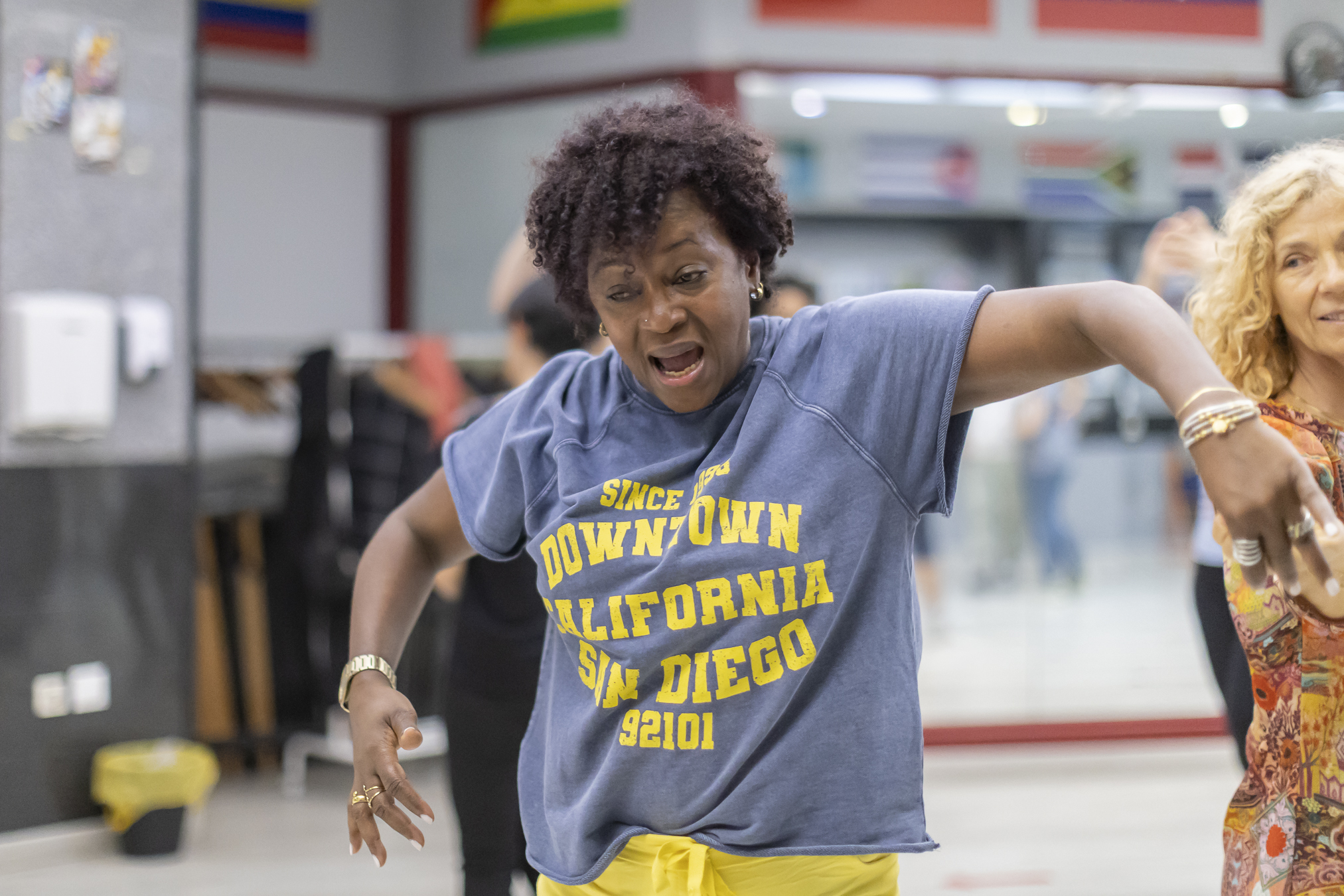
© Ana Caldeira
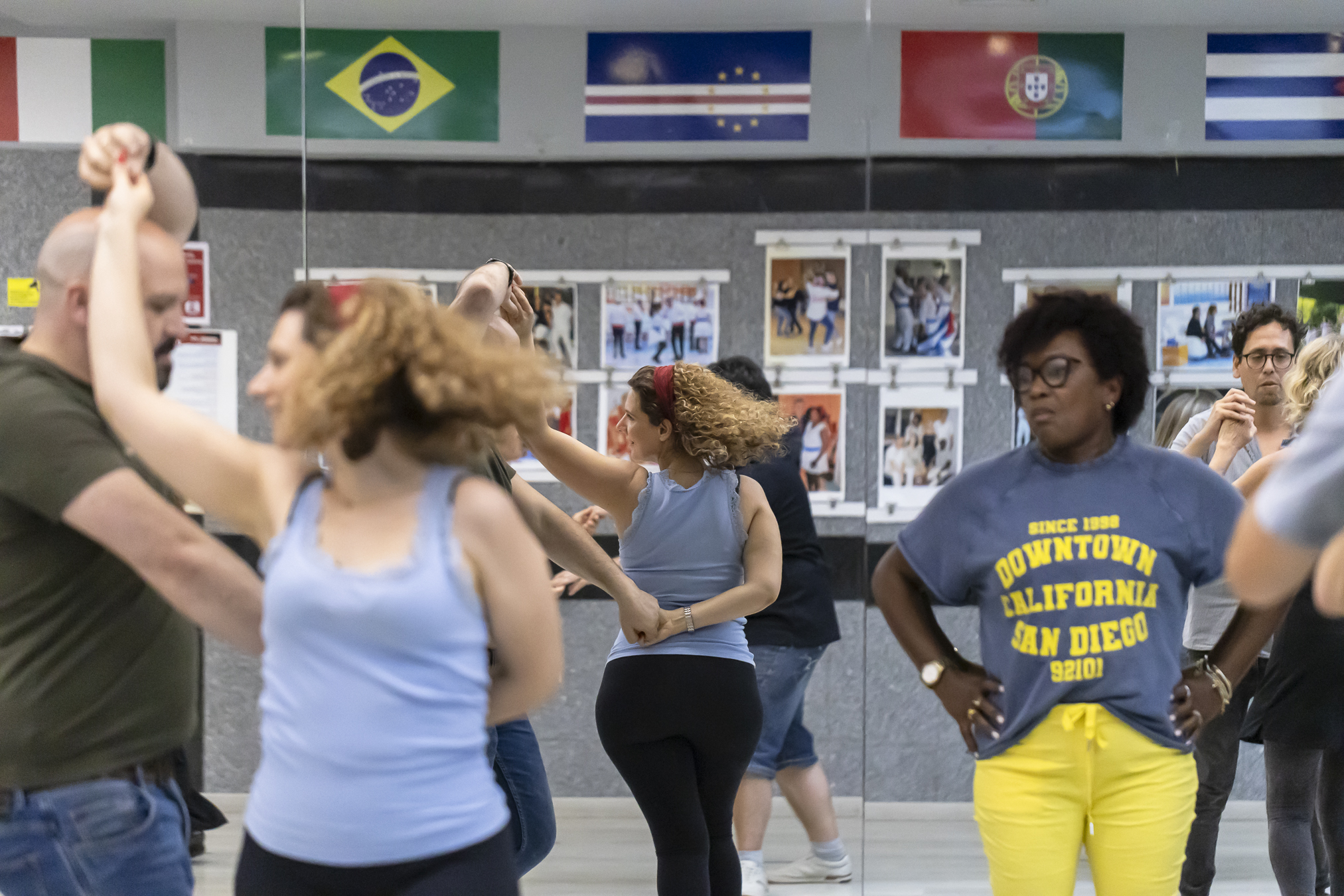
Aula de salsa © Ana Caldeira
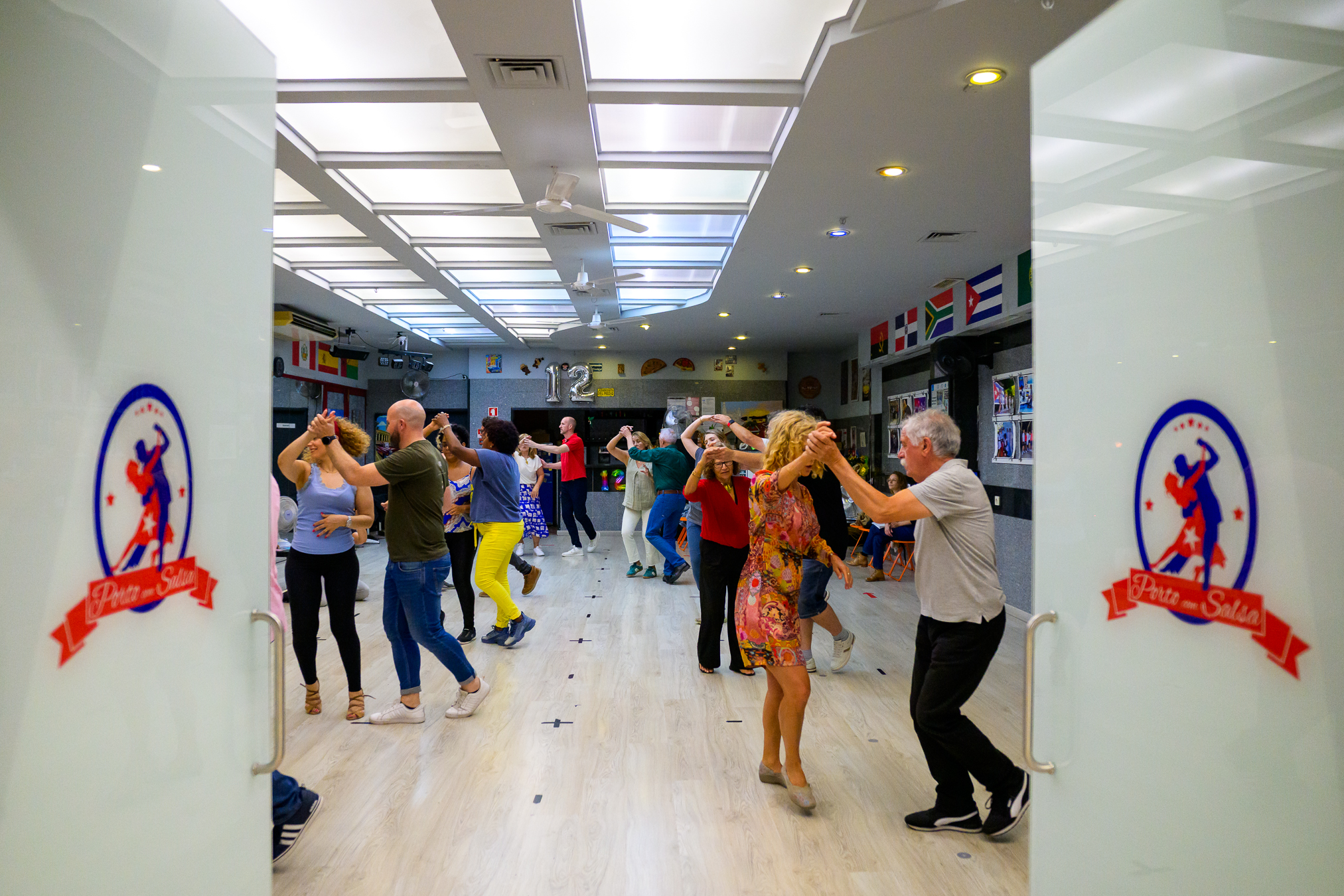
© Nuno Miguel Coelho
Niubis, who keeps up a lively pace of conversation, mixing Portuguese and Spanish, says that before opening the school she went to several dance schools where Cuban salsa was supposedly taught, but where she found what she calls ‘imperialist salsa’. 'Cuban dances have been greatly discredited by Portuguese teachers,' she complains, adding that 'the salsa that is taught in Portugal is that of New York and Los Angeles. 'For men, it's much simpler; the man stands still and the woman twirls,' while Cuban salsa 'is more difficult; they both twirl and the man has a lot of leadership; [Cuban salsa] pushes them a lot. She says that's when she thought: ‘this is my chance to sell what's mine, to show that you dance imperialist salsa, and I'm going to make a spectacle of myself!’.
She continued to frequent the venues in the city where Cuban bands often performed (‘there were eight or nine Cuban bands performing in different venues, but after the Covid-19 pandemic they disappeared’). ‘To make a name’ and attract students, she started leaving Porto com Salsa flyers in these venues.
12 years later, the school, which started out in Prelada and moved to Brasília five years ago, is still open to anyone who wants to learn to dance. As well as Cuban salsa (called roda de casino), there are other Latin rhythms such as Argentine tango, bachata and bolero, but there's also funk/twerking, forró, samba no pé and samba na gafieira, quizomba and semba, as well as belly dancing. 'When I started Porto com Salsa, I only intended to teach Cuban dances (salsa, bachata, chachachá), and I would be the only teacher, but some teachers started giving me their curricula, and there was also interest from the students." At this point she emphasises that the teachers at Porto com Salsa ‘come from the countries of the dance disciplines’ they teach.
In the beginning, the students ‘were practically all women, but now it's much more balanced’. And Niubis has students from various age groups: ‘they range from 20 to 70’. "The oldest student I have here is Antero, aged 75, and his wife, who must be in her 60s. They're with me from Monday to Saturday because they're more available than the younger ones."
We stayed to watch a Cuban salsa class taught by Niubis. ‘Come on, comrades-in-arms!’ she urged the students. There, we realise, they're sweating their socks off. Niubis shouts ‘tough!’ and laughs.
As well as Porto com Salsa, and thanks to a collaboration with the Espaço T association, Niubis also brings joy through dance to the elderly, people with disabilities and disadvantaged children. "I started giving dance classes to the elderly on Thursdays at Espaço T, and then I started working with children with Down's syndrome. Now, on Mondays, I give classes at the União de Freguesias de Matosinhos e Leça da Palmeira to patients at the Pedro Hispano Hospital; on Tuesday mornings, I give classes at the Leça do Balio Parish Centre; on Wednesdays, to children at the Padre Américo School, and on Fridays, at the Obra Social Nossa Senhora da Boa Viagem and the Custóias Social and Cultural Centre."
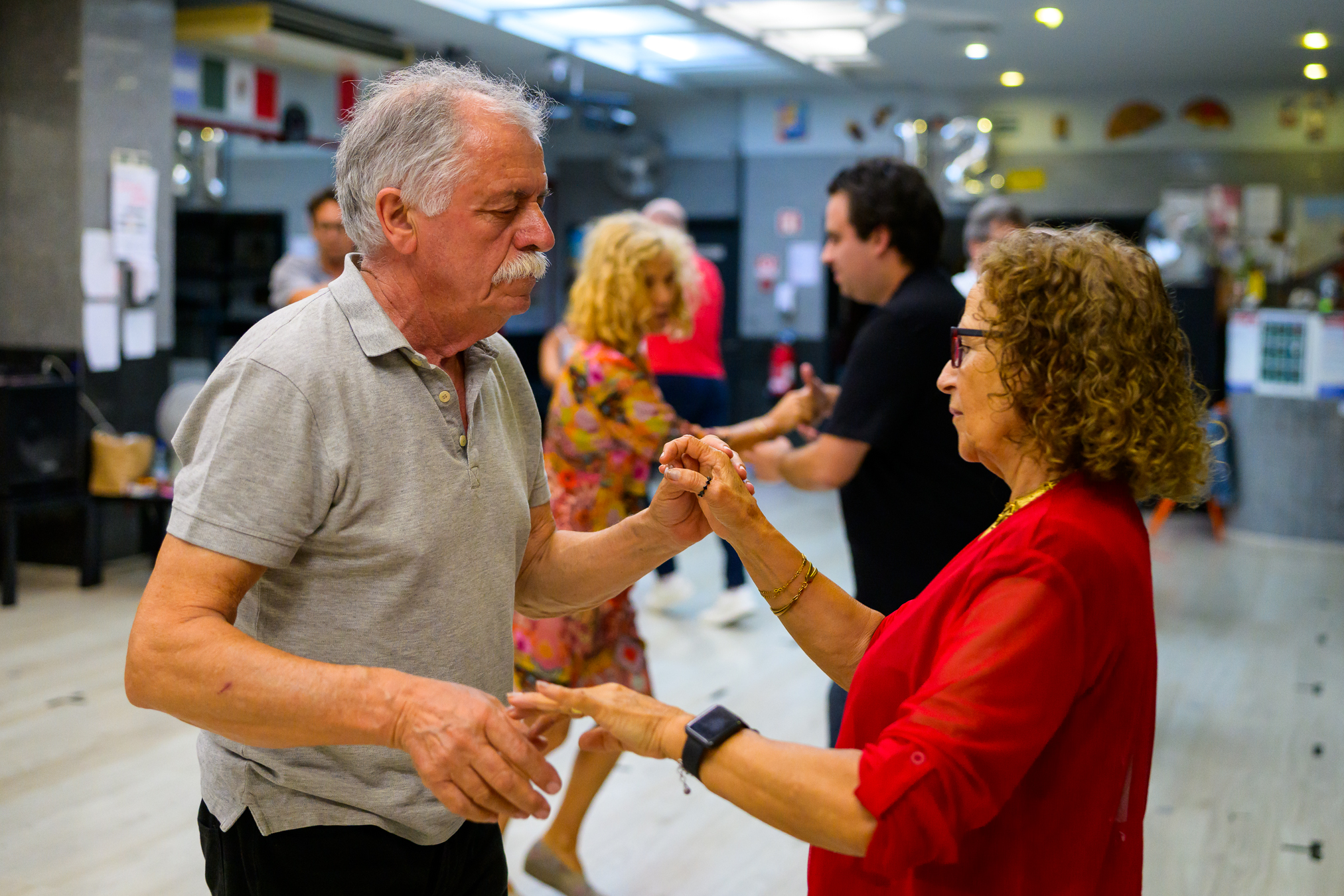
© Nuno Miguel Coelho
Cuban Nights
As well as dance classes, Porto com Salsa also hosts Cuban Nights, which take place once or twice a month with live music by Los Cubanitos. The next dates are 12 July and 21 August.
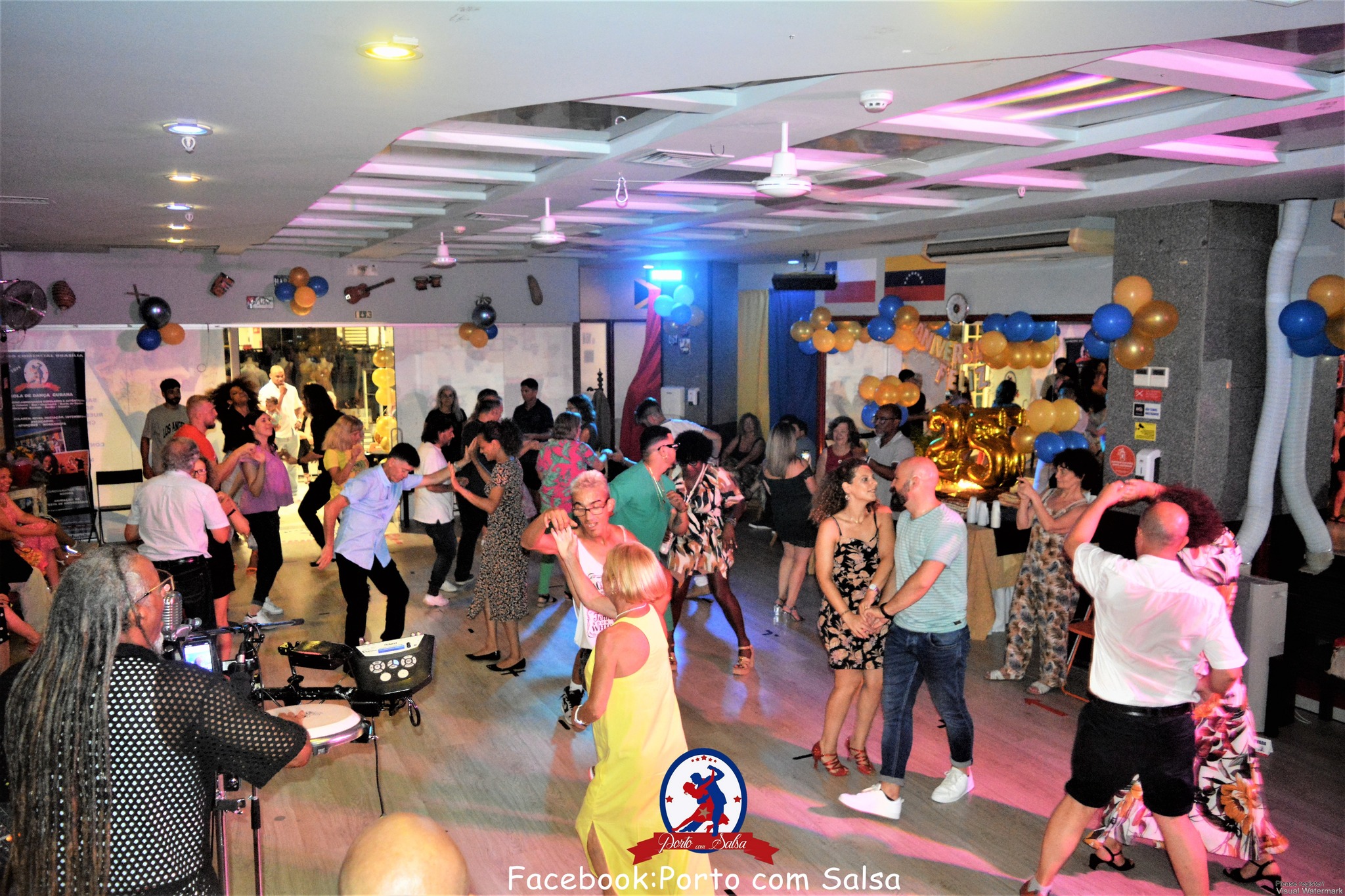
Noite Cubana, agosto 2023 © Porto com Salsa
"Porto is my home"
Living in Porto for almost two decades, she says that this is “her home”, but admits that it was hard at the beginning. ‘What kept me going so I wouldn't miss Cuba was finding Cuban bands, so I would go wherever there were Cuban bands playing.’ Today, this Cuban woman, who is a naturalised Portuguese citizen, says: "Porto is my city of heart. I'm happy here and I'm very grateful to the Portuguese people. Although I speak portunhol [a mix of Portuguese and Spanich], Porto is my home."
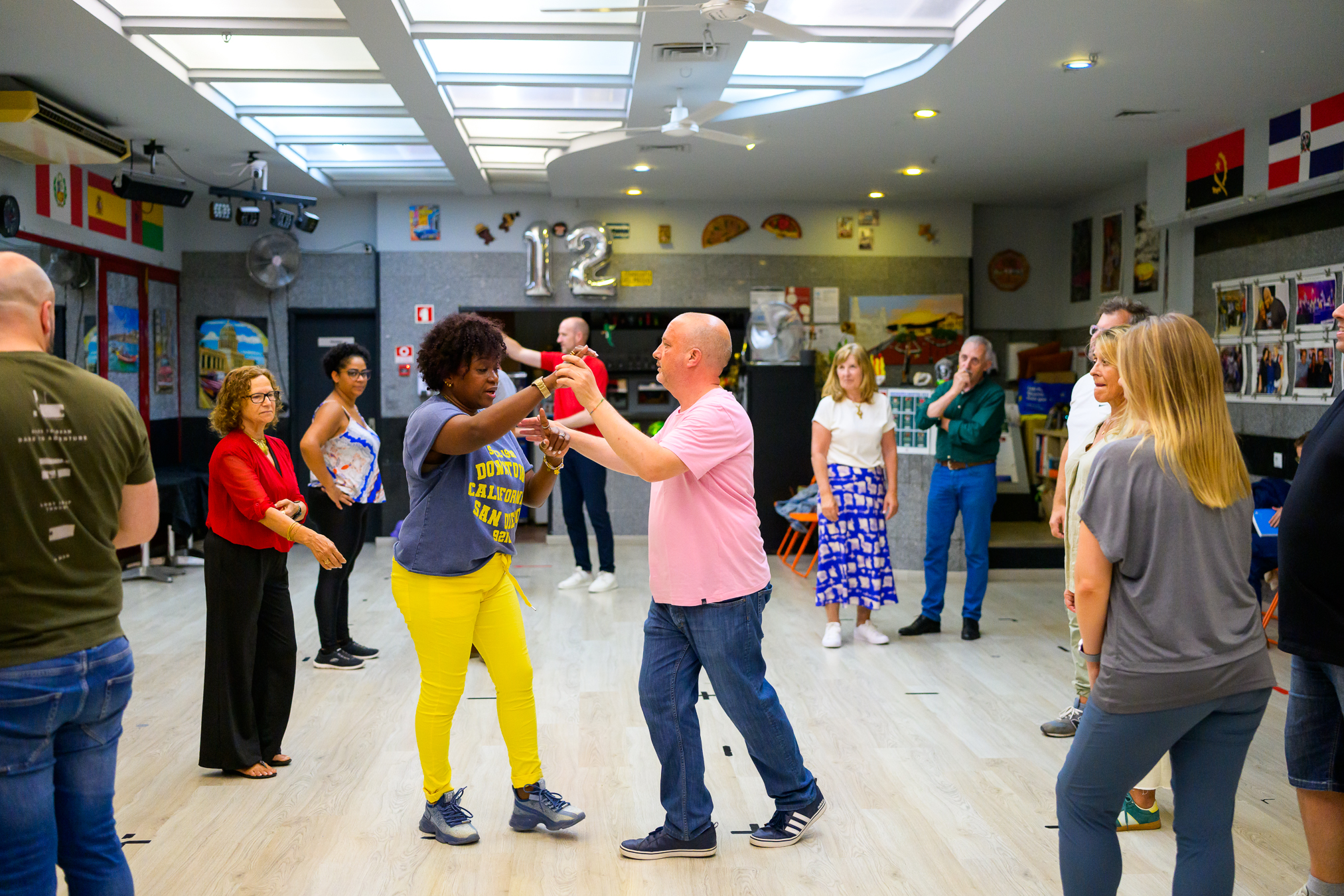
© Nuno Miguel Coelho
Share
FB
X
WA
LINK
Relacionados


